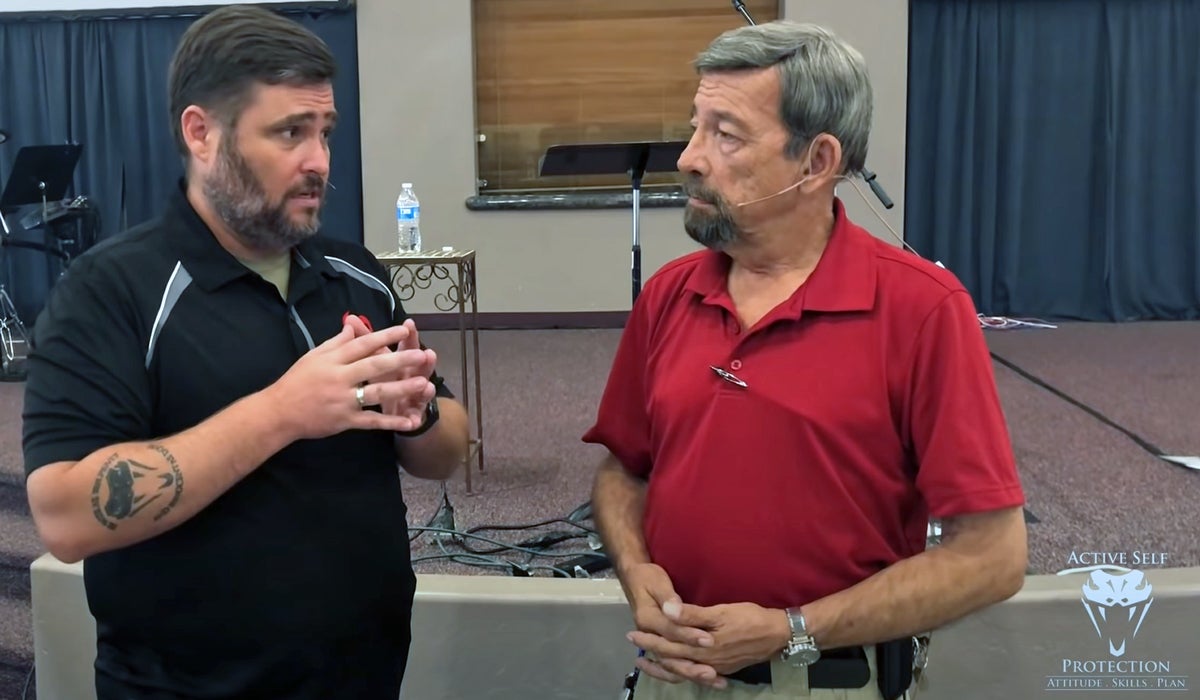Should You Talk to Cops After a Self-Defense Shooting? Massad Ayoob Says Yes.
Russ Chastain 07.24.20

This video from ‘Active Self Protection Extra’ provides a different look at the “say nothing” approach to dealing with police after a defensive shooting. Conventional wisdom — and many a concealed-carry instructor — says that you should clam up when police arrive at the scene and refuse to say anything without your attorney present, because “police are not your friends” in that situation.
Defensive shooting expert Massad Ayoob disagrees, and as usual he provides solid, thoughtful reasons for that.
Ayoob says you only have one chance to make a good first impression, and when an investigating officer arrives at a shooting scene, being alive while someone else is dead automatically sets you up as a perpetrator and the dead guy as a victim.
On top of that, the criminal justice system views the person who makes the first complaint as the “victim complainant.” And when someone refuses to talk without an attorney, that often means he or she is guilty.
Another point he makes is that if you were attacked by multiple bad guys and one or more of them get away — and you say nothing to the police so they don’t know that 1) you were facing multiple threats when you used your firearm for self defense and 2) there are some bad guys at large — that doesn’t help your case in the least.
Massad Ayoob offers a five-point checklist of things to cover with the police instead of just clamming up:
- Establish the active dynamic. This means letting the investigators know what the bad guy did to force you to use your firearm against him. This establishes you as the victim.
- Reinforce that by stating you will testify against the bad guy — and Ayoob says the wording of that may be “a little bit tricky.” Don’t say “I’ll press charges,” because in some areas only prosecuting attorneys can press charges. Instead, say “I will testify against him/them.” This strengthens your position as victim.
- Point out the evidence. Preserve it if possible; which can be difficult when medical and other personnel are running around disturbing the scene.
- Point out the witnesses. I know from experience that witnesses don’t always get interviewed or even have a statement taken at the scene; do your best to make it easy for officers, so the witnesses can back up your story.
- Shut up. Tell the officer he or she can expect your full cooperation after you’ve spoken with an attorney.
This is great content, and I thank Active Self Protection and Massad Ayoob for it.
Watch for yourself:
